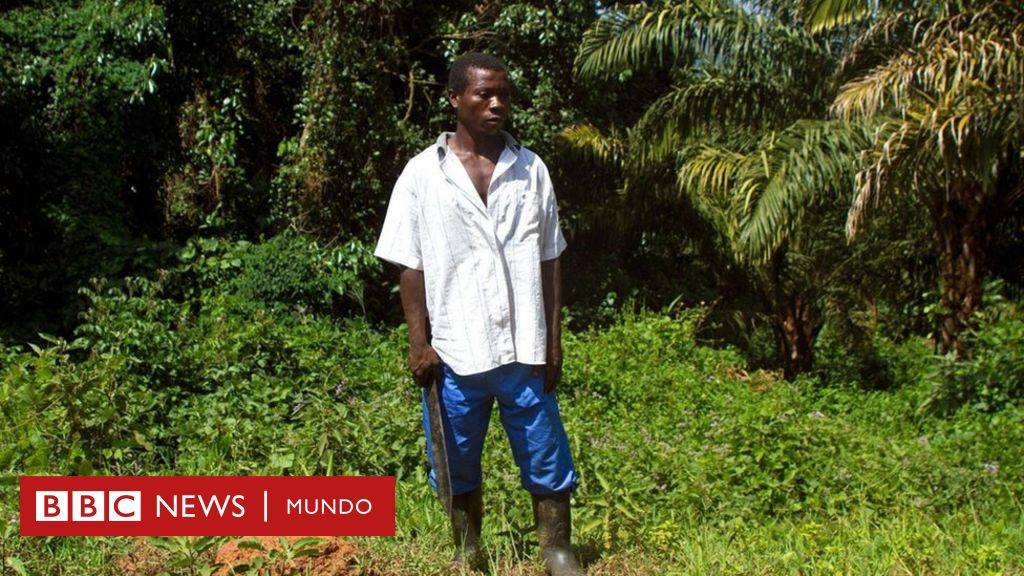A life dedicated to Spanish science fiction
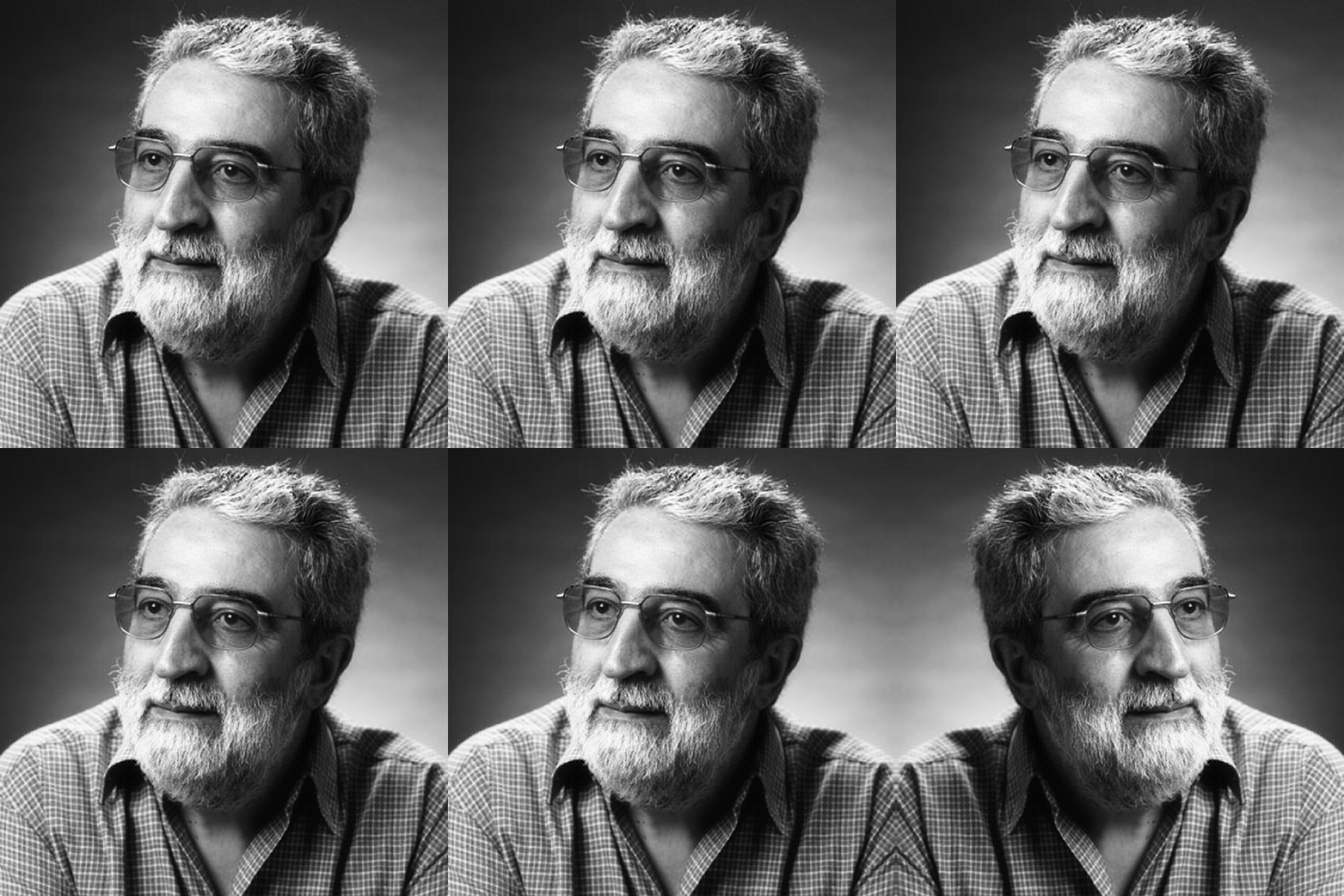
Almost half a century ago Dune Frank Herbert once again became a media phenomenon because of the film adaptation by Denis Villeneuve, there was a man who made an effort to bring this and other staples of science fiction into our language. that was Sunday saints, Nick name Pedro Domingo Mutinado, who has published as the author of 40 novels and a hundred stories but their translated works are much larger, nearly a thousand completely connected with the expansion of the genre in Spain.
Domingo Santos: A Life of Science Fiction (Ediciones El Transbordador, 2021) is an essay by Mariano Villarreal (Baracaldo, 1967) that fulfills the historical debt to remember one The great pillars of Spanish science fiction While the panorama contains a series of festivalsand events and associations that were initially unimaginable during Franco’s dictatorship. It is also a loving tribute that includes a text by Domingo Santos himself, a review of all his references and farewell notes to authors closely related to his career, especially the so-called HispaCon generation.
Mariano Villarreal is the author of this detailed article and works as Director of Information Technology at the Ministry of Economy and Finance of the Basque Government. Since 2004, he has been a web portal manager great literature And his work as a reviewer for genre works during all of these decades only occurred to me to qualify as a cyclopean.
“It is not easy to write a book like this, but it is the only way to organize and appreciate our past.”
Mariano Villareal, author of Domingo Santos: A Life of Science Fiction
When asked about the material conditions for conducting such a study, he answered the following: “The book occupied me for a year and a half of research, documentation, coordination and writing. For this I had to go to the National Library in Madrid to collect various data, interview historical figures such as Luis Vigil in Barcelona, buy old books and magazines on specialized sales portals, and dive into the countless virtual libraries that are an invaluable resource for the investigator. Fortunately, I am also a collector and had most of the materials in my house, although I also had to ask for collaboration from other fans who gave me what I was missing. It is not easy to write a book like today, you need to have access to all this material, have many contacts and do a tremendous and thankful job as a bookworm, but it is the only way to organize and appreciate our past.”
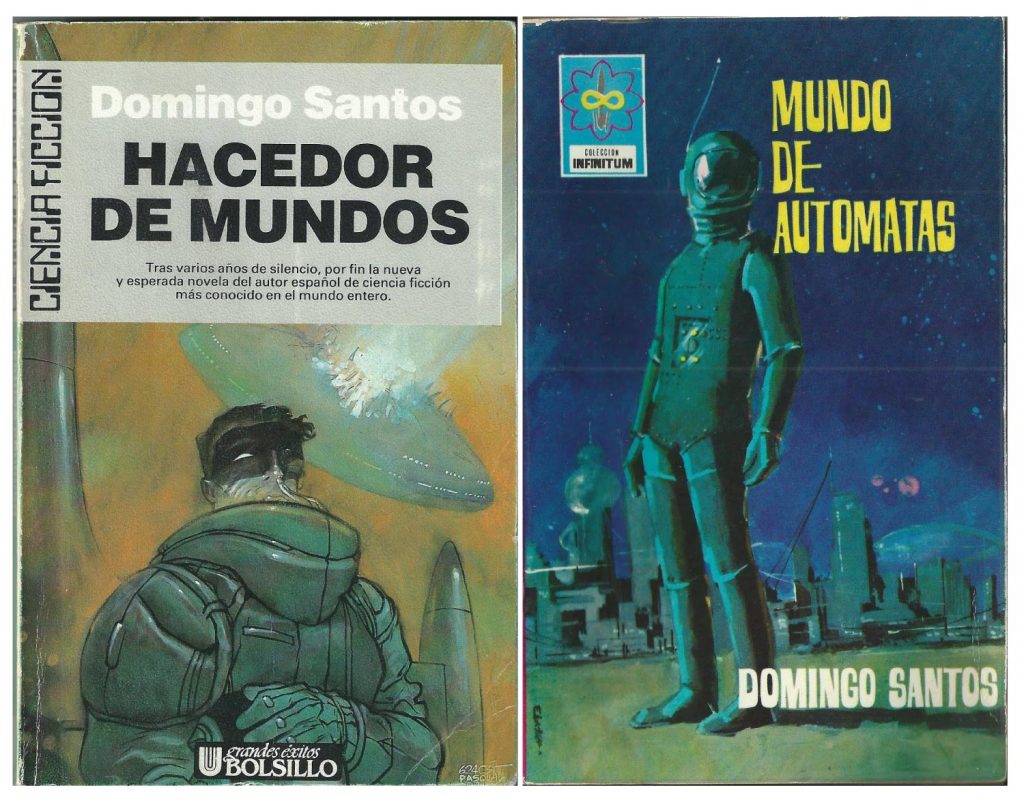
master of science fiction
The biography of Domingo Santos (Barcelona, 1941 – Zaragoza, 2018) interests all spam in Spanish regardless of interest in the genre of fantasy or science fiction because it allows comparisons between different schools with all those famous personalities who humbly began to write pocket books, as They were too Francisco Gonzalez Ledesma, Terence Moix or Ramon y Cajal.
The historian will also find value editorial adventures In a confrontation Francoist sergeants Beyond the Italian erotic magazines that have crossed the border. Examples include the saga of the sword and magic Nomanur (1971) written with his friend and editor Luis Vigil, he was censored and had to wait several years for it to appear again as well as the story Go Ta Gotorak Time travel with the Basques.
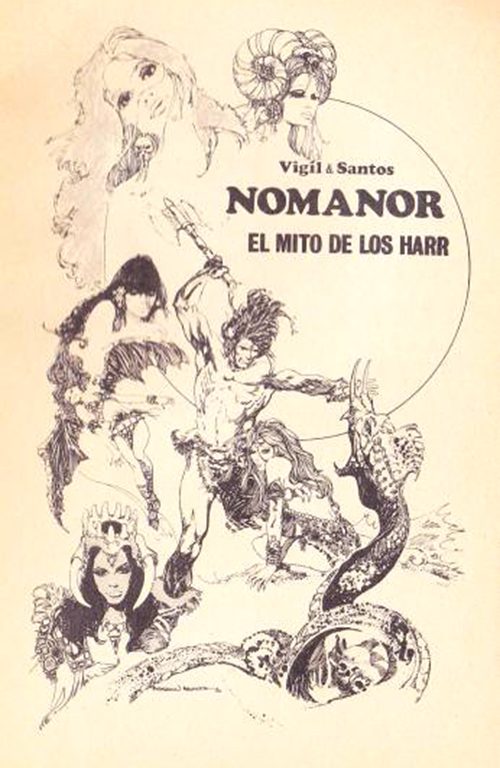
Domingo Santos’ legacy works unconsciously
Juan Manuel Santiago, author of We Will Die by Friendly Fire
Mariano is not the only specialist to agree on the importance of Domingo Santos. Juan Manuel Santiago, author of the article reviewing the history of the genre We will die in friendly fire (Rat Hunter, 2019), also explains the following about his legacy: “I have the impression that Domingo Santos’ legacy operates unconsciously, at least in new generations of fans. Many of the achievements directly or indirectly attributed to Domingo Santos do not bear his name, but it is undoubtedly true that without being the sole architect of these achievements, he had a lot to do with them.. The expression of a fan base for remarkable literature, the celebration of Spanish or Hispanic conventions, the emergence of magazines and specialized groups and, above all, the normalization of the publication of Spanish authors in the collections of the time on a par with the first world companies would have been very different had it not been for the dynamic personality of Domingo Santos. In short, he was ultimately responsible for providing the necessary motivation for gender in Spain to gain self-awareness.

A prolific profession characterized by instability
Recently laureate Cesar Aira said that “the origin of national literature is the origin of sensitivity to measure the steps of citizens who wanted to become writers in time” and this is undoubtedly the influence of Santos’ legacy. However, the end of his life was marked by great financial difficulties.
The person who narrated these hardships is Mariano Villarreal, whom we asked again to find out what political measures could avoid these circumstances: «Spain needs a list of artists and other professionals connected to the world of culture, to avoid their suffering in the twilights of a life devoted to the enjoyment of others.. In this sense, recent developments such as retired authors no longer have to forgo the pension they are entitled to to collect the benefits of their work, allowing us to move in the right direction.”
Regarding the case of Santos in particular, he adds: “The case of Domingo Santos is exemplary. After a long career as a director or consultant in several publishing houses, he made hundreds of individual translation agreements (often carried out clandestinely), During much of his working life, he lacked a stable contract that would contribute to the public treasury of Social Security; This was a common practice in the Spanish publishing system prior to copyright enforcement and was physically impossible to deal with. For this reason, he alternated between booms with others during which he dragged serious economic difficulties, especially in his later years. Fortunately, the Intellectual Property Act 1987, and its aftermath, came to regulate a sector where fraudulent practices are common.”
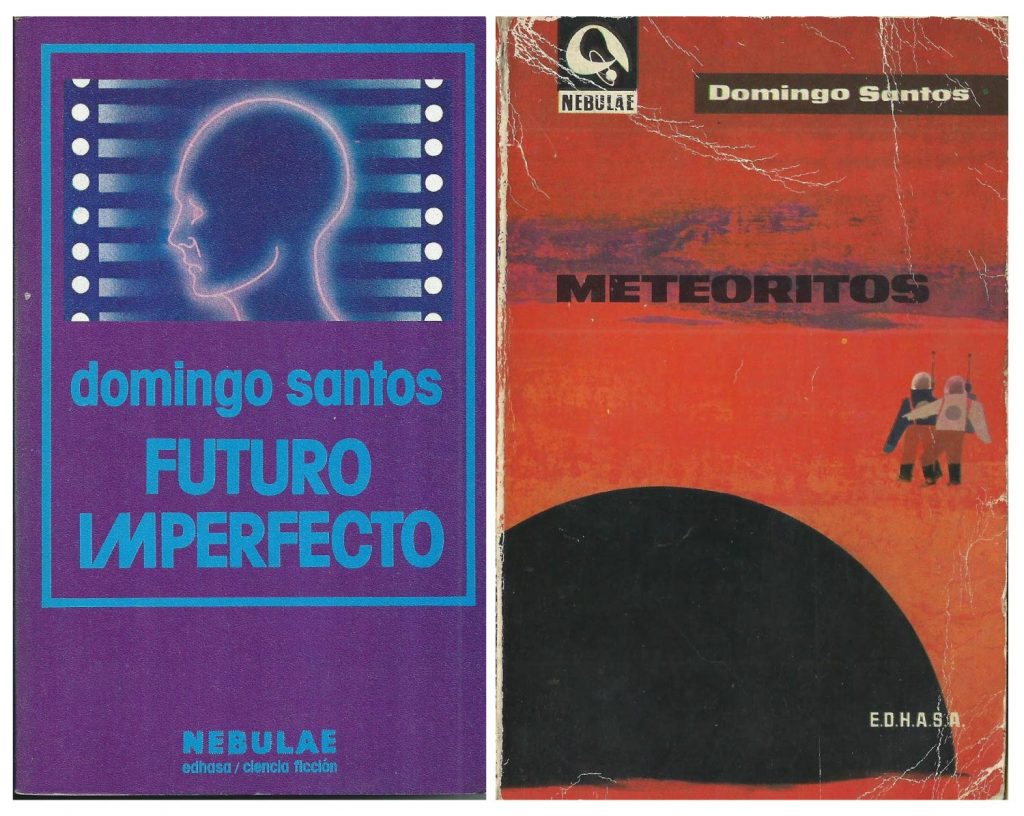
As we asked Juan Manuel Santiago about the matter, he replied: “First of all, intellectual property legislation that does not allow literary translators such as Sunday saints the Matilda HornWith hundreds of translations of bestselling titles behind them, they will face real economic difficulties in their later years […] The above cases of Santos and Horne are especially bloody, because they were in fact what we know today as Fake Freelancers. They prolonged their professional activity until they could not take it anymore. In his work as group manager, Domingo Santos also took on the functions of what would today be publishing services companies, those external collaborators who provide the edited product in action to the schedule editor, who limits himself to coordinating the process, green-lighting and order payments. In this way, costs have been reduced, particularly in titles from Ultramar Publishing, so that they can be published at really competitive prices, almost from a newsstand set. The readers and publisher came out winners, but this practice did not benefit Domingo Santos at all, as we return to the same thing, and he did not quote until one day, because he was an outside collaborator who provided a fixed rate service.”
Since comparisons with the current scenario are inevitable, Santiago adds: “The other course of action, endorsed by the European Union, should consist of Restricting the powers of the National Competition Committee, so that cases such as the fine imposed on the Correctors Union for recommending the minimum rates for the sector are not repeated. It is not acceptable for management to punish attempts to avoid unfair competition and arbitrary rates by bad professionals. In this sense, there is still a lot of work pending, and the sad state of Domingo Santos is a constant reminder that we are not much better than we were twenty years ago. It will be necessary to ensure that the same will not happen with future heroes of genre literature.

“Award-winning zombie scholar. Music practitioner. Food expert. Troublemaker.”


/cloudfront-eu-central-1.images.arcpublishing.com/prisa/AHVYMMDSTZDTDBFNZ3LMFUOKNE.jpg)








